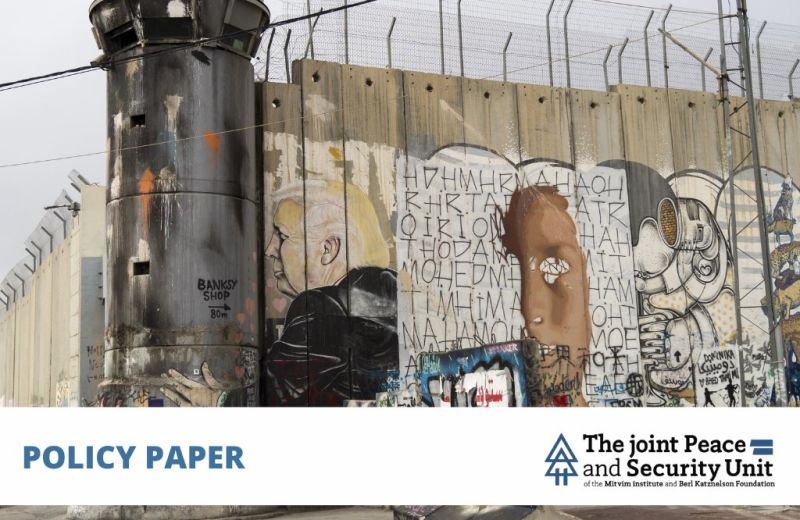 Policy papers and recommendations
/ Israel and Europe
Policy papers and recommendations
/ Israel and Europe
• From the outset the Trump administration has shown the extent of its recklessness and unpredictability. In this context Europeans must work more closely together to safeguard their interests and values in the Middle East, as well as in Europe.
• To sideline Trump’s dangerous proposals for Gaza, stabilise the situation, and generate diplomatic progress, European actors must work with Arab states and others to present viable alternatives that can credibly claim to better fit Trump’s regional goals. In this context European actors should focus on achievable outcomes and play to their strengths. Whereas Europeans have limited capacity when it comes to strongarming Israelis or Palestinians to make difficult
compromises on final status issues, they have a lot to offer in bottom-up Palestinian state building and establishing a regional framework for a two-state process.
Stopping the war and creating a regional framework for diplomacy
• European actors must work with as wide a coalition as possible of Arab states and others to persuade Trump that his interests are aligned with the European
mainstream, moderate Arab states, and moderate Israelis and Palestinians.
• Europeans should work with Arab states and others to promote conditions that are politically helpful for Israeli moderates to make the case domestically for
regional normalization linked to Israeli commitment to a demilitarized Palestinian state.
Stopping annexationist moves in the West Bank
• Changes in the West Bank driven by settler extremists working with ministers are threatening Palestinians and entrenching the settlement project with the intention of making a two-state solution impossible.
• If Netanyahu, with the backing of the Trump administration, continues down this path, European actors will have to consider what costs and incentives they can apply to influence Israeli government steps. In deploying any coercive measures, they must consider how to maximise intended effects whilst minimising the risk of unintended consequences.
• At the same time, there may be untapped potential for European incentives. Floating recognition of Israeli positions on issues like refugees, settlement blocks
and Jerusalem as part of a regional process could deepen the divide between Netanyahu’s coalition and the mainstream.
Bottom-up Palestinian state building
• An indispensable component for progress towards a Palestinian state is a revitalised Palestinian Authority, with the priority being security (for both Israelis and Palestinians) governance and delivery.
• The agenda should include measures to strengthen Israeli confidence, including delivering on announced changes to stop the welfare system rewarding terrorists, removing incitement from the education system, and reassessing the role of UNRWA.
• For the Trump administration, the EU’s role in reforming the PA through newly applied conditionality should be framed as an essential building block for a successful normalisation deal involving Saudi Arabia.
• The Gaza Strip represents an immeasurable logistical challenge. Politically the challenge is to create mechanisms for international actors and the PA to rebuild, whilst marginalizing Hamas.
Bolstering moderates in wider society
• Any hope for a future stable political order depends on a critical mass of public support on both sides for the goal of a two-state solution.
• Europeans should significantly increase long term investments in grass roots peace building.
• They should also confront social media companies about the promotion of extremist content, and work with them to support content orientated towards moderation and coexistence.
• Europeans should partner with Arab and wider Muslim cultural drivers of tolerance and moderation.


